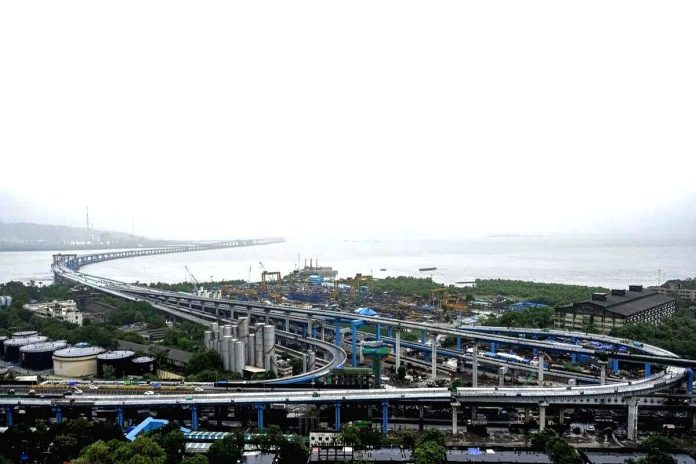The Mumbai Metropolitan Region Development Authority (MMRDA), which has taken up several infrastructure projects in the Mumbai Metropolitan Region (MMR), has started preliminary work for raising funds worth Rs 20,000 crore required to finance these mega projects.
The Authority has earmarked an expenditure of Rs 28,705 crore for the ongoing big-ticket infrastructure project such as Metro corridors, Mumbai Trans Harbour Link (MTHL), Versova-Vasai Sea Bridge, and the subterranean roadway connecting the Eastern Freeway and Marine Drive, among others, in the ongoing fiscal.
As part of this, the MMRDA has asked its transaction advisor, SBI Capital Markets, to float an expression of interest (EOI) from lenders to provide a rupee debt at a fee of 0.25 per cent of the total funds raised.
Earlier in July 2022, the Maharashtra Cabinet had in-principal okayed a proposal of MMRDA to raise Rs 60,000 crore loan to fund these infrastructure projects. The State government also decided to stand as guarantor to the first tranche of the loan to be raised — worth Rs 20,000 crore.
5.01 lakh crore investment In 20 years
The MMRDA had finalised a Comprehensive Transport Study (CTS) with technical assistance from the World Bank in 2008 through a private research consultancy firm to ensure planned expansion of the transportation systems in the Mumbai Metropolitan Region.
Mumbai Metropolitan Region (MMR) comprises of entire area of Mumbai City, Mumbai Suburban and parts of Thane, Raigad and Palghar districts. Spread across an area of 6,355 sq km, the region has a population of 2.5 crore.
Further, in 2021, the Authority released updated Comprehensive Transport Study – 2 which recommended various transport and traffic measures for horizon year 2041 (Long Term), 2031 (Mid Term) & 2026 (Short Term) respectively.
The study recommended 487 Km of metro, 292 Km of suburban rail, 1,090 Km of highway, 5.60 km of bus Rapid Transit System, four state bus terminals, five Intercity rail terminals, seven multimodal hubs among others for the improvement of MMR Traffic.
The CTS-2 for the period up to 2041 has envisaged investments worth Rs 5.01 lakh crore over the next 20 years to implement these measures.
Revenue Mismatch
The Mumbai Metropolitan Region Development Authority’s (MMRDA) projects are a mix of equity, and bilateral, multilateral as well as syndicated debt, according to their website.
Financed partially though loans taken from international financial institutions like Asian Development Bank (ADB), NDE, Japan International Cooperation Agency (JICA) and KEW, the MMRDA also uses internal accruals generated through land deals and asset monetisation.
The MMRDA does not have the power to generate revenues by way of tax and consequently, it has opted to generate revenue through land deals and the monetisation of its assets, particularly the Metro network.
Capital revenue from sale of land is MMRDA’s major source of income. As of now, it has land parcels — mainly in BKC and other parts of MMR — worth Rs 49,000 crore. Other sources of income include leasing out grounds, development fee, interest on loans given to municipal corporation/city council and interest on fixed deposits among others.
While the MMRDA expects to generate a substantial amount of revenue in the next 25 years from various sources, including its land bank, the Rs 60,000 crore loan will act as a buffer in case of non-receipt of revenue from expected sources in the next five years due to delay in the projects.
“Considering the proposed fund flow in the next five years, if revenue is not generated as expected, then approximately, there will be a shortfall of Rs 60,000 crore. In case of non-receipt of loans, MMRDA will not be able to complete the projects currently in progress.”


